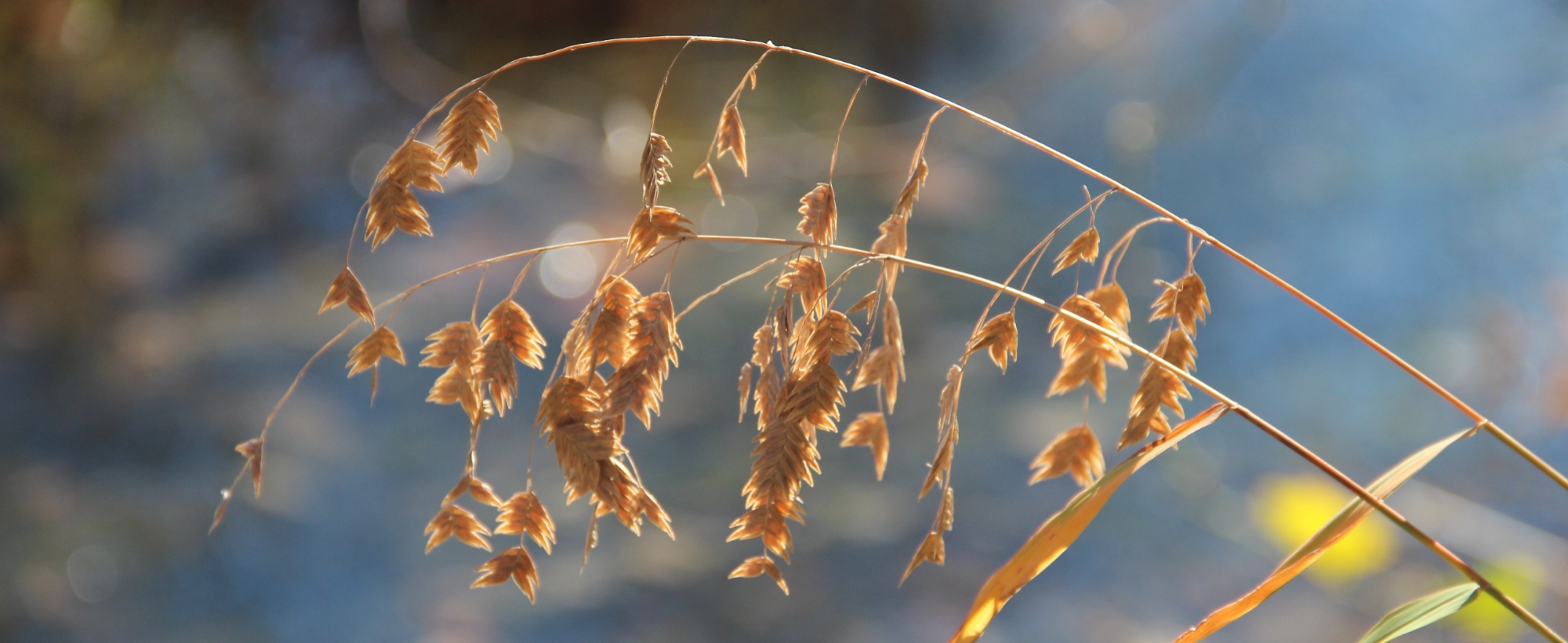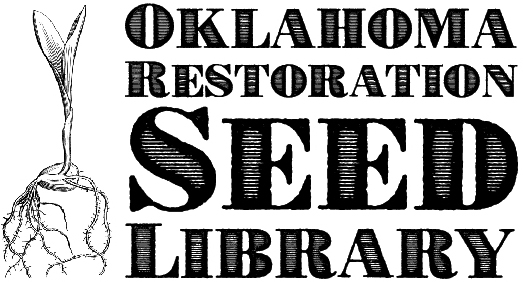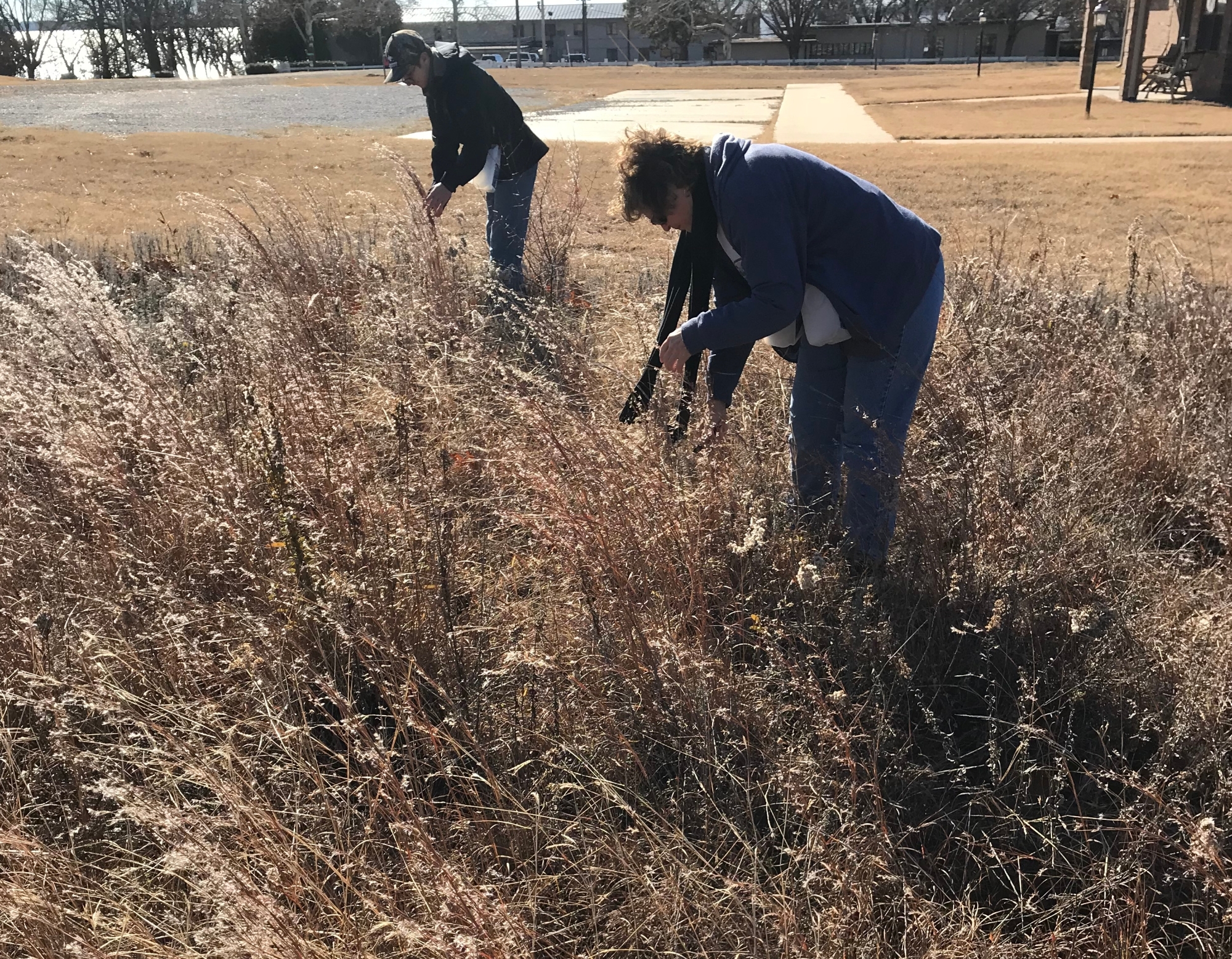

In the spring of 2018, we initiated the Oklahoma Restoration Seed Library to collect seeds from iconic native plants with the goal to acquire seeds from around the state representing the genetic diversity of key species. As the collection grows, we will make seeds available for native plant landscaping and restoration projects. We will host seed collecting workshops to demonstrate how to collect and document seed collections for our seed library.

We are focusing on iconic grasses of Oklahoma, but we encourage collecting of other species that you can identify and have in abundance. Plants are easiest to identify when they are flowering. We recommend marking plants with flagging tape or record specific landmarks or coordinates to help you relocate populations when the seeds are ready. Always get permission from the landowner when collecting. Areas destined to be developed or destroyed in the near future provide excellent sites for collecting seeds, provided the landowner has given permission. Never collect seeds from rare or endangered species — collect only from plants that you find growing abundantly in a given area to ensure that you do not eradicate an isolated population.
Most native seeds are collected by hand using common tools and inexpensive supplies. Seed heads can be cut from the plant, rather than pulling which could uproot perennial plants. Seed heads or fruits can be put in paper bags which are easy to label, but may be cumbersome in the field. Containers attached to your waist, such as cut milk jugs on a bungee cord work well in the field (Tallgrass Prairie Center). Unbreakable plastic combs can be used to strip grass seeds off the plant.
Collect in dry weather, if possible. Avoid collecting other plant material to reduce cleaning time and the risk of seed herbivory (insects often hide in other plant parts) and fungal growth. Use “breathable” containers such as paper envelopes or bags. Do not use plastic bags. Tape the seams and corners of paper containers to avoid leakage if you are collecting small seeds.
Collect data about the site (see data sheet). Take photographs of habitat and plants you are collecting from (including close up of seed head/fruit).
One of the project goals is to capture the genetic diversity within the species that we are collecting. To do so, we recommend the following:
Use cloth or paper for collecting and short-term storage so that moisture will escape. Seeds retain enough moisture when first collected to potentially mildew or rot if left in plastic bags. Temporary storage of seeds before shipping to the Seed Library should be in a cool, dry environment. Avoid heat (such as inside a hot car) and direct sunlight. If seeds are wet, dry them on paper towels at room temperature before shipping. Do not oven dry. We recommend that you send seeds in small paper envelopes within a padded envelope or box.
Mail seeds and data sheet in a padded envelope or box. If using an envelope, write “Please Hand Cancel” on it to prevent damage to the seeds during postal processing.
Priscilla Crawford
Oklahoma Restoration Seed Library
Oklahoma Biological Survey
111 E. Chesapeake St.
Norman, OK 73019